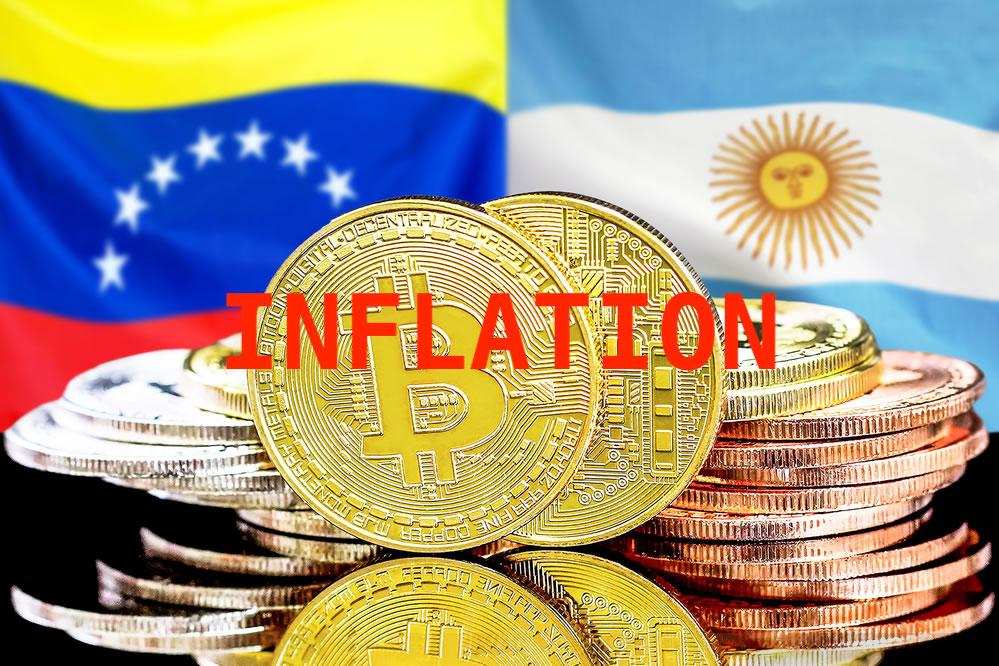RIO DE JANEIRO, BRAZIL – Monthly inflation in Argentina during February 2022 was 4.0%. In the same period, Venezuela suffered an inflation of 1.7%.
The figures, for Argentina, correspond to private consultants, since the official data from the National Institute of Statistics and Census (INDEC) will not be available until March 15. For Venezuela, the number provided by the Observatorio Venezolano de Finanzas (OVF) is used.
Read also: Check out our coverage on Argentina
According to OJF & Asociados analysts, Argentines saw a considerable increase in prices, especially in transportation and food and beverages. Monthly variations for these items were 6.3% and 5.5%, respectively.

Venezuelans saw considerable price increases in communication (16.7%) and services (10%). This was offset by price reductions in all other items. These included: food (-10.5%); alcoholic beverages and tobacco (-6.2%); and miscellaneous goods and services (-5.8%).
It was this drop in prices that made Venezuela drop positions in the Latin American inflationary ranking in February 2022, although the Caribbean country should maintain similar figures to also abandon the leadership of the inter-annual ranking.
As reported by the aforementioned source, Venezuelan year-on-year inflation was 246%, while in the southern country it is around 51%.
WHY IS INFLATION FALLING IN VENEZUELA?
As this media reported a couple of weeks ago, the country governed by Nicolás Maduro has had five consecutive months of monthly inflation below double digits. Moreover, with twelve months of inflation below 50%, it is no longer possible to speak of hyperinflation.
Read also: Check out our coverage on Venezuela
After the last monetary reconversion in Venezuela, the State ceased the inorganic issuance of money that it had been chronically issuing for years. Ronald Balza, professor of economics at the Catholic University of Caracas, explains it as follows:
“Hyperinflation in Venezuela is going as it came. (…) The Government did not take measures to stop it, but rather stopped doing what caused it, which is to finance itself with accelerated monetary issuance.”
Balza’s words seem to evidence the veracity of the postulate of the late Milton Friedman, one of the referents of economic liberalism. For this American economist, winner of the Nobel Prize in 1976, “inflation is always and everywhere a monetary phenomenon”.
WHY DID ARGENTINE INFLATION EXCEED VENEZUELAN INFLATION IN FEBRUARY?
Although February’s monthly inflation in Argentina exceeds Venezuela’s, as the above data betrays, this is not due to a considerable increase in the southern country, but to lower prices in Venezuela.
As CriptoNoticias reported weeks ago, signs of an agreement between the Argentine government and the International Monetary Fund (IMF) have put a brake on the inflationary escalation and the devaluation of the national currency, which had been accelerating.
In any case, this agreement -which is not yet firm- would only extend the payment term, so that the next government would have to take charge of it.
Before the negotiation was announced, the liberal congressman José Luis Espert had predicted that inflation would reach 100% year-on-year in the event of not agreeing on a payment of the debt.
It may be thought, then, that the Argentine situation is one of “tense calm”. At any moment, the 4% or 5% monthly inflation rate to which Argentines are accustomed to, could shoot up to levels that have not been seen for several decades.
MONETARY SOVEREIGNTY OF INDIVIDUALS
In these contexts, both in Venezuela and Argentina there is a bitcoin ecosystem in constant growth. New exchanges, companies providing services with bitcoin (BTC) and the growth of groups in social networks prove it.
In Argentina, Satoshi Nakamoto’s cryptocurrency is a perfect refuge against the devaluation of the peso, in the medium and long term.
Even for the Venezuelan case, where the bolivar is maintaining a certain stability, bitcoin generates interest in the population. On the one hand, it offers protection against the devaluation of the dollar, which is slower than that of Latin American currencies, but not for that reason non-existent. On the other hand, it offers characteristics that fiat money (much more in its digital versions) does not have: the inconfiscability and resistance to censorship.
Venezuelan economist and bitcoiner, Daniel Arraez, values these characteristics of bitcoin, as he foresees “a turbulent period in regulatory terms” for the near future. He suspects -as he stated in a dialogue with CryptoNews- that the growth in the use of BTC could take place underground. It would be “a more discreet form, where the actors who are now showing their faces or who are showing themselves as promoters could be affected by the security and control bodies of the State”.

